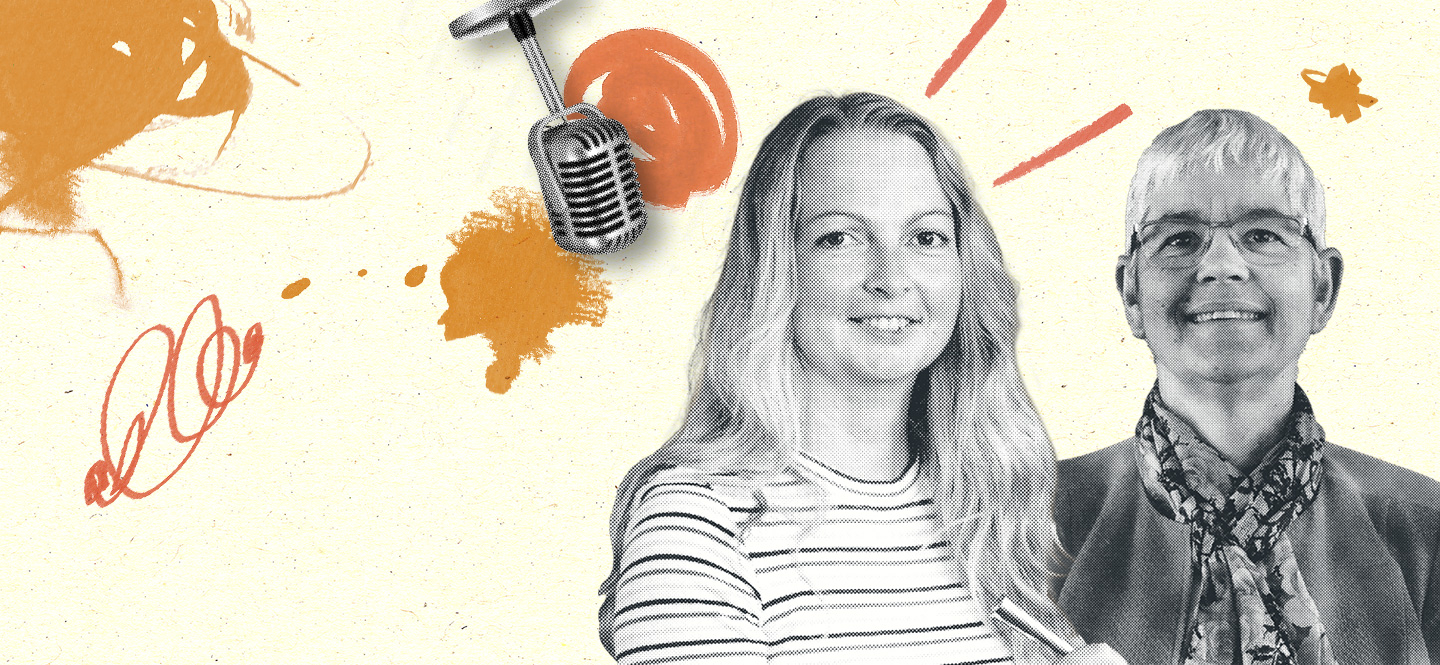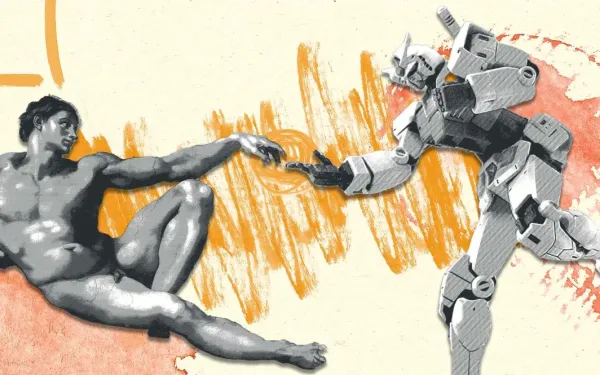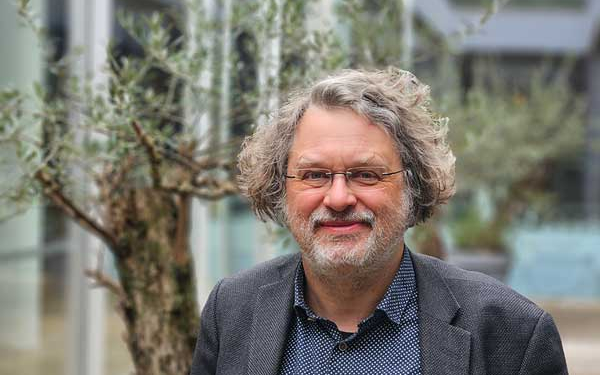
VolkswagenStiftung
For five years, the foundation supported projects addressing the social dimension of artificial intelligence. We look back on the successes, challenges and the question of how sustainable the initiative's impact has been – and look ahead to the future.
In 2018, the Volkswagen Foundation took a bold step with its funding initiative 'Artificial Intelligence and the Society of the Future': it brought together the technical and social sciences to not only further develop AI from a technical perspective, but also to explore its consequences for our coexistence. Who is responsible when AI makes decisions? How much transparency is possible, how much is necessary?
With small planning grants and large project funding, it created space for interdisciplinary teams to ask questions about responsibility, transparency and regulation at an early stage. Our funding officer Dr Ulrike Bischler and project manager Miriam Reinhart look back on seven years of project funding and the initiative's closing symposium in April 2025 in conversation with Tina Walsweer.
In 2018, we launched the funding initiative 'Artificial Intelligence – Its Impact on Tomorrow's Society.' One of the core objectives was to promote the responsible development of AI systems. In your opinion, has this been achieved?
Dr. Ulrike Bischler: Looking back, we can definitely say yes. Back in 2017, there was an exploratory workshop where the first teams from the fields of technology and social sciences were formed. The first round of calls for proposals benefited enormously from this. And in the subsequent rounds, it became clear that AI had arrived in research – not only in computer science, but also in the social sciences and humanities, such as philosophy and ethics. In the end, there was no shortage of current issues or qualified project teams. One of the central goals was to build a community that brings technology and society together. We have succeeded in doing that.
AI was already a big topic in 2018. Where did the foundation position itself at that point?
Dr Ulrike Bischler: Technological research was already very present at that time, and AI was widely promoted. What was new for us was the social aspect: what impact does AI have on how we live together? At that time, awareness of this was not yet very strong. Today, a few years later, AI has arrived in mainstream society – whether through chatbots or media debates about regulation. But when our initiative was launched, this everyday presence was not yet widely visible. In this respect, our perspective was timely and forward-looking.
Has the thematic focus of the projects changed over the years?
Dr Ulrike Bischler: Interestingly, hardly at all. The central themes from 2018 to 2021 are just as pressing today. AI is developing rapidly, as we also saw at the final symposium. Many of the detailed results were already outdated at the time of the presentation because software versions or fields of application had changed so quickly. What remains, however, are overarching insights into ethical issues, user training and the methodology of interdisciplinary collaboration. These cross-cutting findings are more enduring than specific case studies.
In 2018, it was impossible to foresee the social impact of AI.
Miriam Reinhart: Yes, I agree. The dynamics in this area are enormous. Just think of ChatGPT – it came out at the end of 2022, and then everything happened very quickly. People who had never had anything to do with AI before are suddenly using AI systems every day. This social impact was hardly foreseeable in 2018.
Are there any projects that have particularly stuck in your mind?
Miriam Reinhart: Yes, there are several. I was particularly impressed by a project involving computer science and law. It deals with automated decision-making systems in the justice system – a highly relevant topic. The team presented their findings in a comic essay entitled 'AI in court'. It tells the story of a young American who is convicted on the basis of an AI-supported system. It is not only scientifically sound, but also creatively implemented. A great example of successful science communication.
Dr. Ulrike Bischler: I have fond memories of several medical and therapeutic projects. I was particularly moved by 'AnonymPrevent'. It deals with the anonymous treatment of paedophilic tendencies – a socially controversial topic in which AI is used for the purpose of child protection. Or 'ReThiCare', a project on the application of AI in elderly care. It was the small, everyday solutions – such as a coloured, flashing cup to remind people to drink – that were particularly convincing. The researchers' approach was also impressive: they went to care facilities in advance, observed and worked alongside the staff. Such projects show how AI can help in everyday life in very concrete ways.
And then there were several projects with political relevance – for example, in the media sector, on hate speech and bots. I found the 'Social Media Companion', which helps young people recognise fake news and AI-generated content, particularly exciting. This is enormously valuable for educational work.
How was the Foundation's choice of topics received by experts in the field?
Dr Ulrike Bischler: The response was very positive overall. We received a lot of praise – for getting involved in this area at an early stage, but also for our courage in tackling sensitive topics such as the paedophilia project and disinformation. At the same time, there was also criticism, particularly of the short duration of the initiative. Many would have liked to see longer-term funding in order to create sustainable research structures. However, by the time our initiative came to an end, other sponsors were already active. Our funding programme helped to set the direction that others later took up.
Funded projects – facts and figures
In the completed funding initiative 'Artificial Intelligence and the Society of the Future', the Volkswagen Foundation supported 48 planning grants and workshops and 21 multi-year cooperation projects with a total of 35.9 million euros.
Miriam Reinhart: The project teams particularly highlighted the good networking within the initiative. Whether at the kick-off, the Herrenhausen Conference or the closing symposium – these formats were greatly appreciated. There was a lot of exchange on current AI issues, and these were also important platforms for young scientists. The foundation's flexibility was also a big plus. Especially during the coronavirus pandemic, it was important that projects could be extended, funds reallocated or new topics added. We received a lot of gratitude for this.
The initiative has now come to an end. What does the future hold for the foundation in the field of AI?
Miriam Reinhart: AI is not stopping at the foundation, of course. We have just introduced internal AI applications, for example for translations and automated text generation. At the same time, we have developed internal AI guidelines to ensure data protection and data integrity. This shows that we are also continuing to develop organisationally in this area.
AI plays a prominent role in funding at zukunft.niedersachsen, our joint science funding programme with the State of Lower Saxony. The first round of applications is currently open for the AI Research Groups Lower Saxony, for which we can offer very attractive conditions with funding of up to €2 million over five years. Postdocs have until the end of September to apply to set up their own AI research group here in Lower Saxony. Another call for proposals is planned for next year.
AI is also of central importance in many of the research networks funded by zukunft.niedersachsen: for example, in modern healthcare at 'CAImed' or in the 'AI Real Lab Agriculture' with a focus on AI applications in agriculture. Last but not least, AI also plays a central role in the future strategy of several universities in Lower Saxony as a higher education location, which we support, for example, in the call 'Strategic Development of Potential'.
AI Research Groups Lower Saxony
Artificial intelligence is a key technology and therefore of central importance to the science system in Lower Saxony. The call for proposals combines the goals of promoting individuals with the further development of AI methods and their application to existing data sets. Deadline: 30 September 2025
Dr Ulrike Bischler: The deadline for our general funding was at the end of 2020. A lot has happened since then – even without a specific AI initiative. AI is now part of many other programmes run by the foundation. I would particularly like to highlight the Research Centre for Science Communication at the University of Tübingen, which focuses specifically on AI. So funding has not been discontinued, but rather broadened. We have achieved our goal of providing impetus. And the success is also evident in the fact that a separate initiative is no longer necessarily needed – AI has long since arrived at the heart of science and society.



